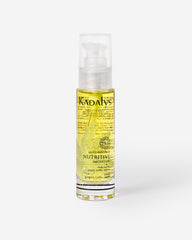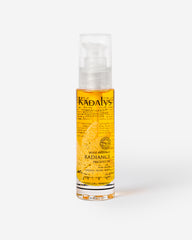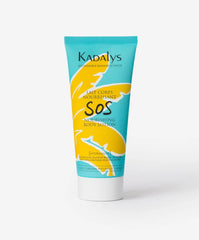
How to explain dry skin?
The skin is an organ in its own right that protects the body from external aggressions (bacteria, viruses) and regulates body temperature. To perform its role, it is composed of three layers: hypodermis, dermis and epidermis. In the epidermis, the superficial layer of the skin, is located the cutaneous barrier and the hydrolipidic film. The role of the latter two is to protect the skin from dehydration, to make it supple, soft and simply beautiful! However, sometimes these two components of the skin can become disrupted. In this case, the skin is prone to dryness and the first symptoms of dry skin appear. So what is dry skin? What are the symptoms of dry skin? What is the difference between dry skin and dehydrated skin? How to take care of dry skin? We answer all your questions in this new article!
Why do we have dry skin?
Dry skin is a type of skin, not a skin condition like dull or mature skin. Dry skin, or xerosis as it is scientifically known, can have multiple causes. First, dry skin can be caused by internal factors:
- Age: as we age, the sebaceous glands produce less sebum, a source of lipids and moisture for the skin.
- Pathologies: certain diseases (diabetes, atopic dermatitis, psoriasis) affect the functioning and appearance of the skin.
- Genetics: you can be born with dry skin, just as you can be born with oily skin.
Second, dry skin can be caused by external factors:
- The environment: heat, wind, pollution or intense heating can alter the skin and therefore its protective barrier function.
- Hygiene: intense washing of the skin with products that are too aggressive.
- Drug treatments: some treatments alter the condition of the skin and its barrier.
What are the symptoms of dry skin?
Dry skin, like all skin types, is characterized by very specific symptoms! Depending on the stage of dryness that the person is experiencing, the skin may look rough, flake off, be red or prone to patches. All of these symptoms are often accompanied by itching and a feeling of discomfort, even pain and burning, that is permanent. The appearance of symptoms is often observed on the extremities of the body, the most exposed parts, such as the hands, feet and of course the face.
What causes dry skin?
In addition to the internal and external factors mentioned above, dry skin can be caused by other factors. Among them: too much exposure to the sun, very hard water, sudden changes in temperature, clothing that is too tight or made of synthetic materials, a diet low in fatty acids or the use of abrasive products. These factors can quickly alter any type of skin, especially skin that is already fragile.
What is the difference between dry and dehydrated skin?
Dry skin, colloquially known as crocodile skin, is a type of skin caused by internal or external factors such as a skin barrier abnormality or drug treatments. Dry skin is rough, flaky, uncomfortable skin that requires fatty acids and moisture. Dehydrated skin, on the other hand, is a skin condition, meaning that any skin type can experience dehydration at some point. Dehydrated skin is simply skin that lacks water. If you use a good moisturizer and make sure you moisturize throughout the day, dehydration will disappear quickly!
What to do about dry skin?
Dry skin needs a good supply of fatty acids, via food or vegetable oils, and water, via moisturizing and creams. The cosmetic products to be used to fight against dehydration and dryness of the skin are care products rich in moisturizing and nourishing ingredients. It is therefore not uncommon to find hyaluronic acid, vegetable glycerin or aloe vera. These ingredients will hydrate the skin naturally, plump it up, but also reinforce its hydrolipidic film. Thus, water evaporates less from the epidermis and the skin can stay hydrated longer. Ideally, we also find butters and vegetable oils. Rich in fatty acids, these natural and organic ingredients will nourish the skin in depth and promote its rehydration!
To fight against skin dryness and relieve the unpleasant symptoms that accompany it, remember to moisturize your skin morning and night and drink throughout the day!













